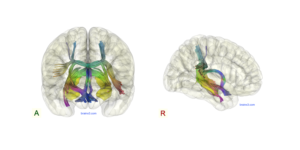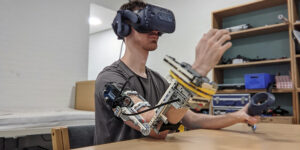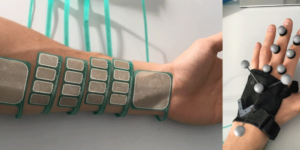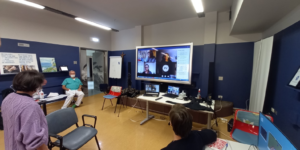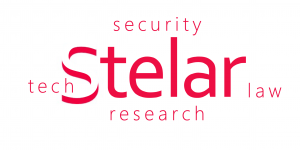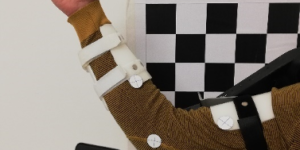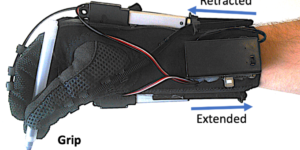REHYB@SSSA: Exoskeletons for upper-limb rehabilitation
30.06.2021. At the Wearable Robotics Lab of Scuola Superiore Sant’Anna (SSSA), we are working on the design and development of the powered exoskeletons for the ReHyb project. The combination of a shoulder-elbow- and a hand-wrist exoskeleton (namely ReHyb-HP and ReHyb-Hand) will allow patients with moderate to severe upper-limb movement limitations to carry out rehabilitation treatments in clinic, receiving adaptive support for functional mobilization of the arm and assistance in grasping tasks.


